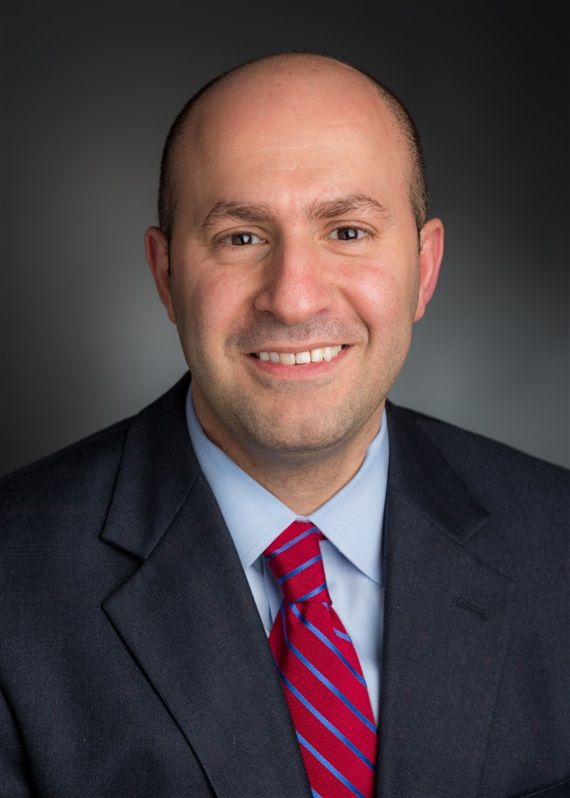Activity in Ongoing Trials Suggest New Agents Are on the Horizon for RCC
For Kidney Cancer Awareness Month, Toni K. Choueiri, MD, spoke with CancerNetwork® about ongoing trials clinicians need to be aware of.
Toni K. Choueiri, MD, director of Lank Center for Genitourinary Oncology and director of the Kidney Cancer Center at Dana-Farber Cancer Institute as well as Jerome and Nancy Kohlber Chair and Professor of Medicine at Harvard Medical School

For Kidney Cancer Awareness Month, CancerNetwork® spoke with Toni K. Choueiri, MD, about his views on the clinical implications of ongoing research in renal cell carcinoma (RCC) and future breakthroughs in the treatment space.
Choueiri, director of Lank Center for Genitourinary Oncology and director of the Kidney Cancer Center at Dana-Farber Cancer Institute as well as Jerome and Nancy Kohlber Chair and Professor of Medicine at Harvard Medical School, is a leader in the field and is currently involved with several trials investigating doublet and triplet therapy for use in the frontline.
He spoke about the most compelling trials currently in progress and which studies clinicians should be aware of for their patients who may be candidates for enrollment.
CancerNetwork®: What emerging research in RCC do you think has the greatest potential for clinical impact?
Choueiri: Frontline triplets are coming, and there is one study that finished accrual by the name of COSMIC-313 [NCT03937219] [that is looking at inhibition of] PD-1, CTLA-4, and VEGF with cabozantinib [Cabometyx], nivolumab [Opdivo], and ipilimumab [Yervoy] versus nivolumab/ipilimumab. There’s another ongoing study with other triplets that involve HIF-2α inhibition. This is interesting, imagine if these are positive and triplet [regimens] becomes standard.
There is also an adjuvant studies [ongoing] that adds HIF-2α to pembrolizumab [Keytruda] with pembrolizumab as a standard control [NCT05239728].
One of the unmet needs in the clinical field of renal cell cancer is what to do after immune checkpoint inhibitors stop working. Should we continue with another immune checkpoint inhibitor, such as using PD-1 or PD-L1 [inhibitors] after progression. There are 2 trials, one has finished accrual, with atezolizumab [Tecentriq] and cabozantinib vs cabozantinib called CONTACT-03 [NCT04338269]. There’s another one called TiNivo-2 [NCT04987203], where the backbone is tivozanib [Fotivda] and you add nivolumab for these patients whose tumor progressed with PD-1 [inhibitors], so there is much excitement in renal cell cancer.
Are there any trials that clinicians treating patients with RCC should be aware of?
Triplet studies are important and adjuvant studies are coming. There are some cooperative group studies that are important. Don’t forget the PDIGREE study [NCT03793166] that is ongoing with nivolumab and ipilimumab, and based on the response, you integrate cabozantinib. It’s open in many of states in the United States.
There’s another study [looking at] cytoreductive nephrectomy called PROBE [NCT04510597], and that study is important [for asking] the fundamental question of how to integrate surgery with systemic therapy in the metastatic setting. There are some niche studies with born metastasis; there’s an Alliance study trying to integrate radiotherapy to see if there’s any role for combining radiotherapy and cabozantinib in patients with skeletal metastases with some innovative end points [such as] skeletal-related adverse events, for example.
Finally, there is some focus on non–clear cell [disease]. We tried to do all these studies in non–clear cell RCC as single-arm studies, hopefully we can get away from that but it’s not easy.
We have a triplet study of nivolumab, ipilimumab, and cabozantinib enrolling, and we also have a study that just launched called Samatha, focused on the biology of RCC. That trial takes patients who are MET dependent and [integrates the] immune checkpoint inhibitor durvalumab [Imfinzi] with savolitinib, which is a pure MET inhibitor, to see if we can have doublets that are biologically based and driven by the biology of papillary RCC.
For additional interviews with leaders in the treatment of pancreatic cancer, see other CancerNetwork® interviews conducted for pancreatic cancer awareness month: